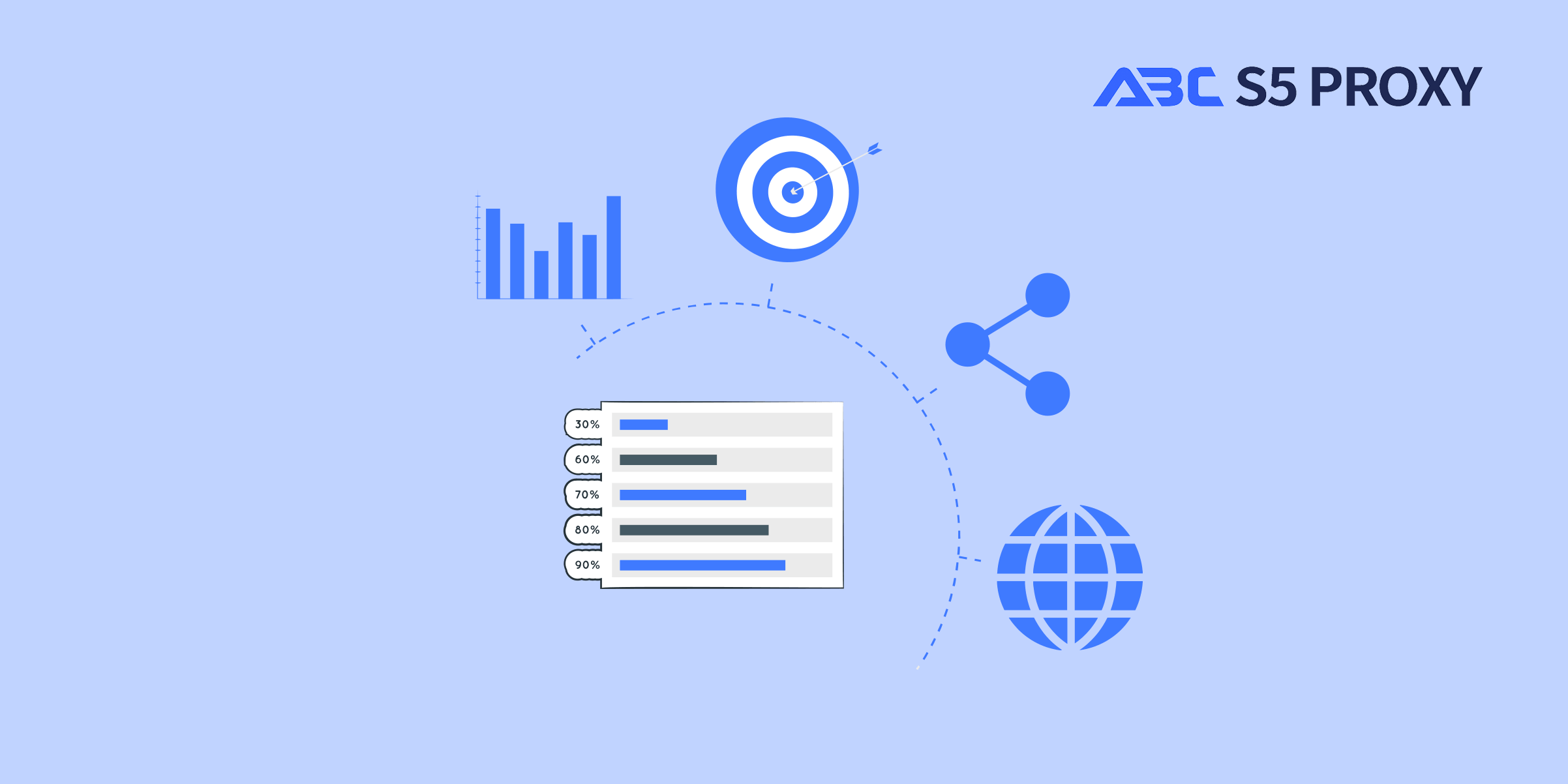Residential Proxies
Allowlisted 200M+ IPs from real ISP. Managed/obtained proxies via dashboard.

Proxies
Residential Proxies
Allowlisted 200M+ IPs from real ISP. Managed/obtained proxies via dashboard.
Residential (Socks5) Proxies
Over 200 million real IPs in 190+ locations,
Unlimited Residential Proxies
Use stable, fast, and furious 700K+ datacenter IPs worldwide.
Static Residential proxies
Long-lasting dedicated proxy, non-rotating residential proxy
Dedicated Datacenter Proxies
Use stable, fast, and furious 700K+ datacenter IPs worldwide.

Web Unblocker
View content as a real user with the help of ABC proxy's dynamic fingerprinting technology.
Proxies
API
Proxy list is generated through an API link and applied to compatible programs after whitelist IP authorization
User+Pass Auth
Create credential freely and use rotating proxies on any device or software without allowlisting IP
Proxy Manager
Manage all proxies using APM interface

Proxies
Residential Proxies
Allowlisted 200M+ IPs from real ISP. Managed/obtained proxies via dashboard.
Starts from
$0.77/ GB
Residential (Socks5) Proxies
Over 200 million real IPs in 190+ locations,
Starts from
$0.045/ IP
Unlimited Residential Proxies
Use stable, fast, and furious 700K+ datacenter IPs worldwide.
Starts from
$79/ Day
Rotating ISP Proxies
ABCProxy's Rotating ISP Proxies guarantee long session time.
Starts from
$0.77/ GB
Static Residential proxies
Long-lasting dedicated proxy, non-rotating residential proxy
Starts from
$5/MONTH
Dedicated Datacenter Proxies
Use stable, fast, and furious 700K+ datacenter IPs worldwide.
Starts from
$4.5/MONTH
Knowledge Base
English
繁體中文
Русский
Indonesia
Português
Español
بالعربية

Choosing a Proxy: A Comprehensive Guide
In today's digital age, the use of proxies has become increasingly common for various reasons, such as ensuring online privacy, accessing geo-blocked content, or improving security. However, with so many options available in the market, it can be challenging to choose the right proxy that suits your needs. In this guide, we will discuss the key factors to consider when selecting a proxy service to help you make an informed decision.
Before diving into the selection process, it's essential to understand the different types of proxies available. The main types include:
1. **Residential Proxies:** These proxies use IP addresses provided by an Internet Service Provider (ISP) to simulate real, residential IPs. They are best for tasks that require high anonymity and are less likely to be blocked.
2. **Datacenter Proxies:** These proxies are not affiliated with an ISP and are faster but more likely to be detected and blocked. They are suitable for tasks that require speed over anonymity.
When choosing a proxy, it's crucial to consider the protocol it uses. The two main protocols are HTTP and SOCKS:
1. **HTTP Proxies:** These proxies are suitable for web browsing and accessing HTTP traffic. They are easy to set up and widely supported by browsers.
2. **SOCKS Proxies:** These proxies are more versatile and can handle various types of traffic, including HTTP, HTTPS, and FTP. They provide better anonymity and security.
The location of the proxy servers plays a significant role in determining their effectiveness. Some key points to consider include:
1. **Proximity:** Choosing a proxy server close to your physical location can help minimize latency and improve connection speed.
2. **Geo-Targeting:** If you need to access region-specific content, consider selecting a proxy server located in the desired region.
For tasks that require high anonymity or frequent switching between IPs, the ability to rotate proxies and IP addresses is essential. Look for providers that offer:
1. **Proxy Rotation:** This feature automatically switches between different proxy servers to avoid detection and improve reliability.
2. **IP Rotation:** Providers that offer IP rotation can change the assigned IP address at regular intervals, further enhancing anonymity.
When choosing a proxy service, consider the scalability and reliability of the provider. Factors to evaluate include:
1. **Number of IPs:** Ensure the provider offers a sufficient number of IPs to avoid IP blocking and restrictions.
2. **Uptime:** Look for providers with a high uptime guarantee to ensure consistent and reliable service.
Finally, consider the pricing plans and level of customer support offered by the proxy provider. Factors to keep in mind include:
1. **Cost:** Compare pricing plans and features to find a provider that offers the best value for your specific requirements.
2. **Customer Support:** Choose a provider that offers responsive customer support to address any issues or queries promptly.
Choosing the right proxy service is crucial for achieving your online goals, whether it's enhancing security, improving anonymity, or accessing geo-blocked content. By considering factors such as the type of proxy, protocol, location, rotation capabilities, scalability, reliability, pricing, and support, you can make an informed decision that meets your needs effectively. Remember to research and compare different providers to find the perfect proxy service for your requirements.
Featured Posts
Popular Products
Residential Proxies
Allowlisted 200M+ IPs from real ISP. Managed/obtained proxies via dashboard.
Residential (Socks5) Proxies
Over 200 million real IPs in 190+ locations,
Unlimited Residential Proxies
Use stable, fast, and furious 700K+ datacenter IPs worldwide.
Rotating ISP Proxies
ABCProxy's Rotating ISP Proxies guarantee long session time.
Residential (Socks5) Proxies
Long-lasting dedicated proxy, non-rotating residential proxy
Dedicated Datacenter Proxies
Use stable, fast, and furious 700K+ datacenter IPs worldwide.
Web Unblocker
View content as a real user with the help of ABC proxy's dynamic fingerprinting technology.
Related articles

How to download a dedicated proxy for Telegram
Analyze the core issues of Telegram proxy downloads, explore efficient access solutions and privacy protection points, and understand how proxy IPs can optimize cross-border communication experience.

How to improve data acquisition efficiency through wget proxy user
This article analyzes the technical principles and application scenarios of the wget tool combined with the proxy IP, and discusses how to optimize the data acquisition process through the proxy service of abcproxy to improve efficiency and stability.